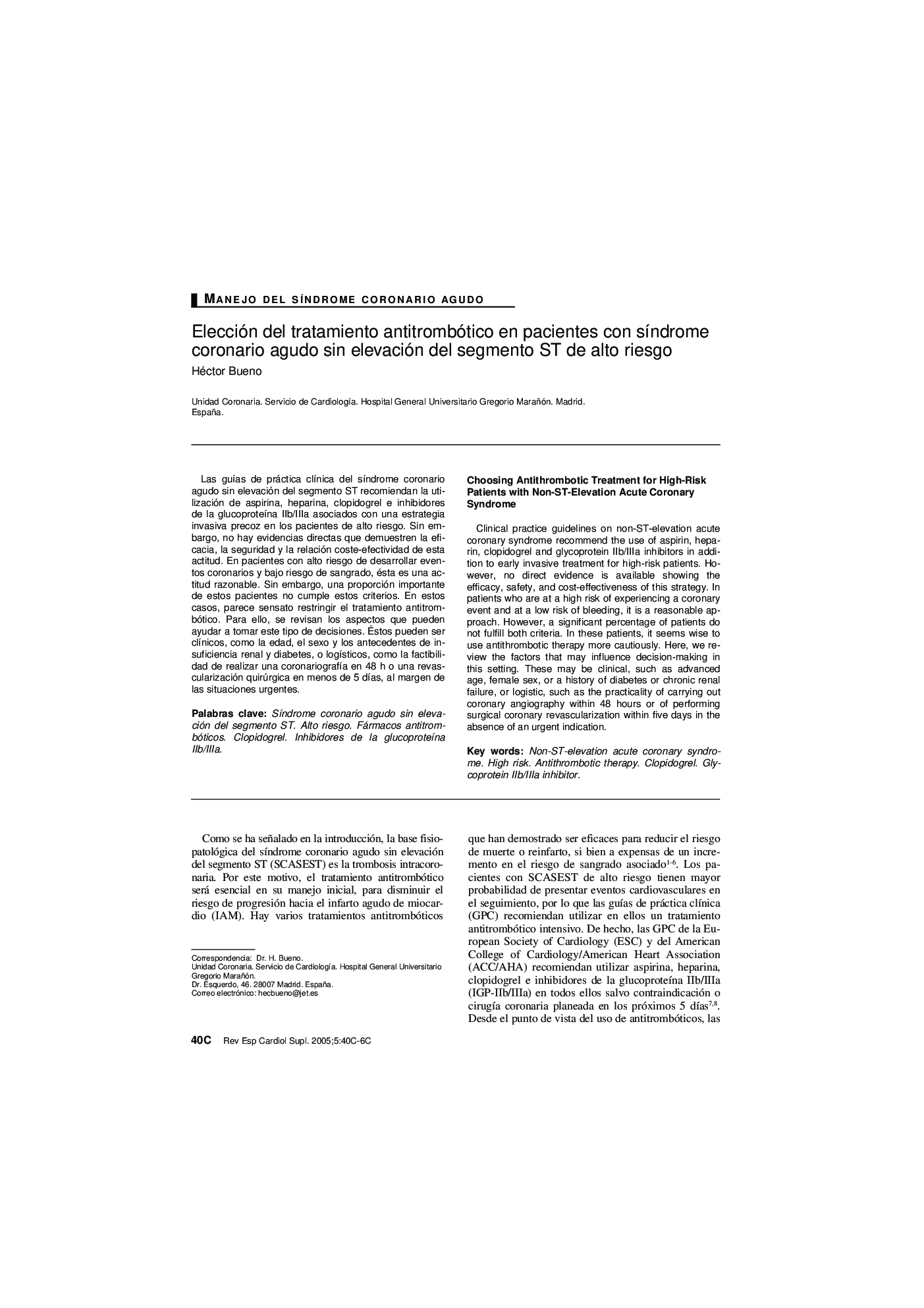| Article ID | Journal | Published Year | Pages | File Type |
|---|---|---|---|---|
| 9182276 | Revista Española de Cardiología Suplementos | 2005 | 7 Pages |
Abstract
Clinical practice guidelines on non-ST-elevation acute coronary syndrome recommend the use of aspirin, heparin, clopidogrel and glycoprotein IIb/IIIa inhibitors in addition to early invasive treatment for high-risk patients. However, no direct evidence is available showing the efficacy, safety, and cost-effectiveness of this strategy. In patients who are at a high risk of experiencing a coronary event and at a low risk of bleeding, it is a reasonable approach. However, a significant percentage of patients do not fulfill both criteria. In these patients, it seems wise to use antithrombotic therapy more cautiously. Here, we review the factors that may influence decision-making in this setting. These may be clinical, such as advanced age, female sex, or a history of diabetes or chronic renal failure, or logistic, such as the practicality of carrying out coronary angiography within 48 hours or of performing surgical coronary revascularization within five days in the absence of an urgent indication.
Related Topics
Health Sciences
Medicine and Dentistry
Cardiology and Cardiovascular Medicine
Authors
Héctor Bueno,
